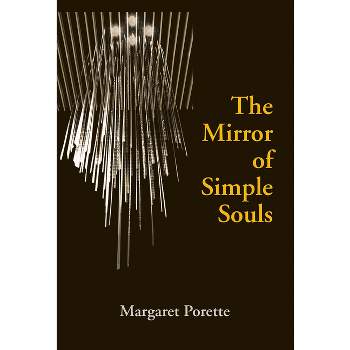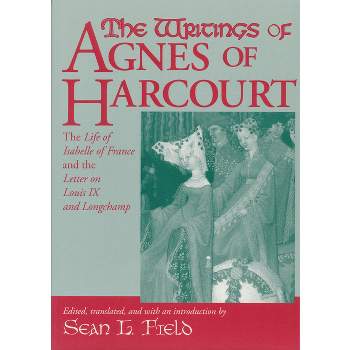Sponsored
Jews and Christians in Twelfth-Century Europe - (Notre Dame Conferences in Medieval Studies) by Michael A Signer (Paperback)

About this item
Highlights
- In the summer of 1096, marauding crusaders attacked Jewish communities in three Rhineland cities.
- About the Author: Michael A. Signer is Abrams Professor of Jewish Thought and Culture in the Department of Theology at the University of Notre Dame.
- 402 Pages
- Religion + Beliefs, History
- Series Name: Notre Dame Conferences in Medieval Studies
Description
About the Book
Fifteen papers from a conference held at the University of Notre Dame in 1996 which explore the tensions that characterised the relationship between Jews and Christians across Europe during the 12th century. The movement of Jews into Slavic territories and into Anglo-Norman England also led to the creation of their own global language.Book Synopsis
In the summer of 1096, marauding crusaders attacked Jewish communities in three Rhineland cities. These violent episodes disrupted what had been a fairly peaceful history of coexistence between Jews and Christians for more than two centuries. Although the two groups inhabited fundamentally different religious universes, Jews and Christians lived in the same towns, on the same streets, and pursued their lives with minimal interference, often with considerable cooperation. However, the events of 1096 caused relations between the two communities to deteriorate, with Jewish communities suffering as a result.
The careful analyses of people, events, and texts provide a balanced perspective on the fate of twelfth-century Jewish communities. The contributors reveal considerable evidence that old routines and interactions between Christians and Jews persisted throughout this volatile period. The essays intentionally highlight areas of common or parallel activity: in vernacular literature, in biblical exegesis, in piety and mysticism, in the social context of conversion, in relations with prelates and monarchs, in coping in a time of change, renewal, and upheaval. Most importantly, the contributors insist on integrating both Jewish and Christian perspectives into the larger history of a very complex and increasingly urban twelfth-century Europe.
Contributors: John Van Engen, Jeremy Cohen, Ivan G. Marcus, Robert Chazan, Jonathan M. Elukin, William Chester Jordan, Walter Cahn, Jan M. Ziolkowski, Michael A. Signer, Elliott R. Wolfson, Susan Einbinder, Maureen Boulton, Alfred Haverkamp, Gérard Nahon, and Robert C. Stacey.
From the Back Cover
The scope of this collection of original essays covers the years 1050 to 1215, but it really begins in the summer of 1096, when marauding crusaders attacked Jewish communities in three Rhineland cities. These violent episodes disrupted what had been a fairly peaceful history of coexistence between Jews and Christians for more than two centuries. Although the two groups inhabited fundamentally different religious universes, Jews and Christians lived in the same towns, on the same streets, and pursued their lives with minimal mutual interference and often with considerable cooperation. The events of 1096 destroyed that status quo. Relations between the two communities deteriorated, and the Jewish communities suffered as a result.
The contributors' careful analyses of people, events, and texts provide a balanced perspective on the fate of twelfth-century Jewish communities. They reveal that there is considerable evidence that old routines and interactions between Christians and Jews persisted throughout this period. From the perspective of the editors and contributors, this sense of complementarity, of interaction or action and reaction, needs to better inform the medieval story. The essays in this volume therefore intentionally highlight areas of common or parallel activity: in vernacular literature, in biblical exegesis, in piety and mysticism, in the social context of conversion, in relations with prelates and monarchs, in coping in a time of change, renewal, and upheaval. Most importantly, the editors and contributors insist on integrating both Jewish and Christian perspectives into the larger history of a very complex and increasingly urban twelfth-century Europe.
Contributors: John Van Engen, Jeremy Cohen, Ivan G. Marcus, Robert Chazan, Jonathan M. Elukin, William Chester Jordan, Walter Cahn, Jan M. Ziolkowski, Michael A. Signer, Elliott R. Wolfson, Susan Einbinder, Maureen Boulton, Alfred Haverkamp, Gérard Nahon, and Robert C. Stacey.
Michael A. Signer is Abrams Professor of Jewish Thought and Culture in the Department of Theology at the University of Notre Dame.
John Van Engen is Andrew V. Tackes Professor of History at the University of Notre Dame, editor of The Past and Future of Medieval Studies (Notre Dame Press, 1994), and author of Devotio Moderna: Basic Writings.
Review Quotes
"... the editors, whose own contributions to the volume are among the best, are to be congratulated on producing a volume that integrates the history of medieval Jews into the history of twelfth-century north-western Europe." --Journal of Ecclesiastical History
"...a fascinating and highly significant book for anyone with a serious interest in the study of the relations between Jews and Christians." --Theological Book Review
"...a particularly interesting and useful set of... essays.... ... it is not often that one wishes a 360-page book were longer. As it is, this collection leaves its readers with a springboard for further reading and thinking; a very good addition to the shelves." --Journal of Theological Studies
"[T]hese essays infuse the process of historiography with an excitement and relevance that can become lost in the details of arcane antiquities. By demonstrating what is vital and best in the research being done in medieval studies these essays remind us of how history informs us and how we form history." --Comitatus
"All of these papers make a contribution to the editors' effort to redirect medieval historiography. [T]he most impressive contribution is Alfred Haverkamp's extraordinarily detailed study exploring perceptions of baptized Jews among both Christians and Jews. [T]hese papers present a variegated portrait of Jewish-Christian relations, yet all agree on the decisive influence of twelfth-century developments for the remainder of the Middle Ages." --Journal of the History of Philosophy
"Essays on interactions between the two groups in northwestern Europe, with a focus on the changes that occurred after a series of pogroms by Crusaders in the Rhineland cities of Mainz, Speyer, and Worms in 1096." --The Chronicle of Higher Education
"The fifteen contributors... include some of the most eminent scholars practicing in the fields of Jewish history and thought, general medieval history, romance literature, Hebrew literature, medieval art, and comparative literature. All of the essays are solid and impressive pieces of scholarship, many are highly persuasive, and some are truly exciting and thought provoking. [T]his is undoubtedly an impressive and important collection, which should be read by anyone interested in medieval religion and society, both for what it has to tell us about Jewish-Christian relations and for what it prompts us to continue to ask." --Speculum
About the Author
Michael A. Signer is Abrams Professor of Jewish Thought and Culture in the Department of Theology at the University of Notre Dame.
John Van Engen is Andrew V. Tackes Professor of History at the University of Notre Dame, editor of The Past and Future of Medieval Studies (Notre Dame Press, 1994), and author of Devotio Moderna: Basic Writings.











